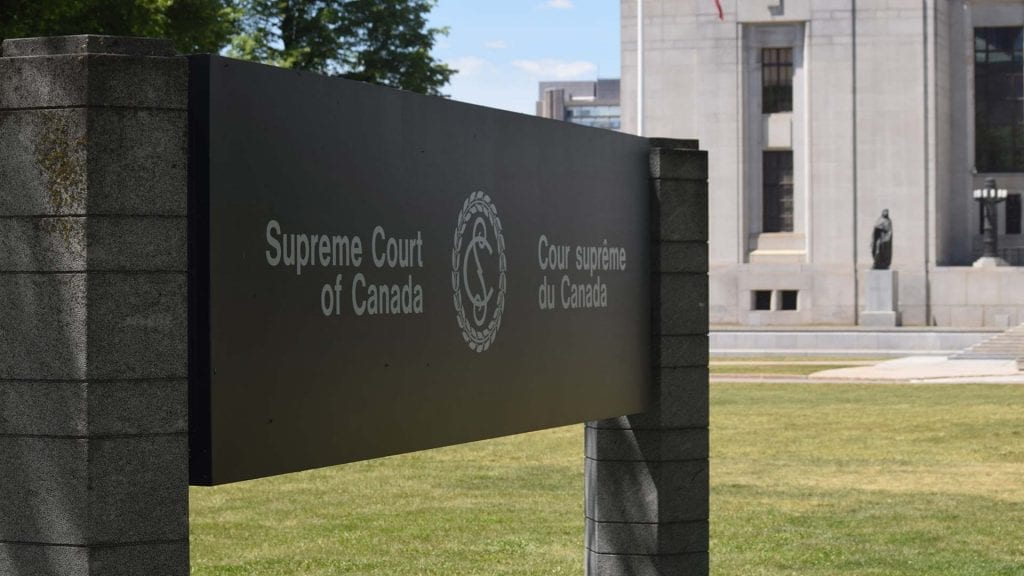
Less than a week before the Pope’s scheduled arrival on Canadian soil, survivors of a Catholic-run residential school near Fort Albany, Ont., are asking the country’s highest court to intervene in a long-standing dispute with the federal government.
A group of St. Anne’s survivors represented by author and former chief Edmund Metatawabin is alleging “significant procedural and jurisdictional gaps” in the handling of their efforts to re-open their compensation claims.
New Democrat MP Charlie Angus, who has long advocated on their behalf, announced the move in a press release on Wednesday.
“The fact that St. Anne’s survivors have had to take their fight for justice all the way to the Supreme Court is a damning indictment of the Liberals’ record on reconciliation,” said Angus in the release.
“How can the Canadian government claim that it respects the rule of law when they suppressed thousands of pages of evidence of the horrific crimes committed against the children?”
Angus said the appeal is linked to a drawn-out legal fight over Canada’s withholding of thousands of pages of police records and court evidence from the residential school compensation process. The documents related to convictions and crimes perpetrated against school pupils.
The survivors filed an application for leave to appeal on March 1. The government filed documents of its own opposing the appeal, Angus said.
The Supreme Court has not ruled whether it will hear the case.
Often cited as one of the most horrific institutions in the countrywide residential school system, St. Anne’s operated between the early 1900s and 1976. It was funded by the federal government and run by the Oblates of Mary Immaculate and the Grey Nuns of the Cross.
Survivors have recounted stories of extreme sexual, physical and psychological abuse there, including use of a homemade electric chair to punish First Nations youth and forcing ill pupils to eat their own vomit.
Four former school staffers and one Indian Affairs employee were convicted on charges including indecent assault, assault causing bodily harm, assault and administering a noxious substance.
With Pope Francis scheduled to land next week, Angus said the prospect of a Supreme Court battle in this case “is proof that the Liberal government continues to fail in its duty to survivors.
“The St. Anne’s survivors have suffered some of the most horrific abuse imaginable. And yet the Liberal government continues to perpetuate the injustice by refusing to sit down with the survivors to find a fair solution,” he said in the release. “There can be no reconciliation in Canada without justice for those harmed at St. Anne’s.”
The St. Anne’s convictions stemmed from an Ontario Provincial Police (OPP) probe into the institution between 1992 and 1996, which procured a large trove of information and documents.
In 2007, the Indian Residential School Settlement Agreement (IRSSA) — the largest class-action settlement in Canadian history at the time — was implemented, offering a common experience payment for which all survivors were eligible and an independent assessment process, or IAP, for those who suffered extreme cases of abuse.
But when the federal government handed over its residential school records for use in the assessment process, it withheld all OPP and related records it possessed.
The judge presiding over the settlement agreement eventually ruled that Canada violated its disclosure obligations under the agreement by withholding documents. He ordered Ottawa to produce them for use going forward.
He did not find Canada acted in bad faith. Rather, the judge “assumed this was done by mistake or misreading of the obligations under the IRSSA.”
The failure to produce documents nevertheless left a lingering sense of injustice among some St. Anne’s survivors who spent years wondering if they’d been shortchanged. Eventually, they brought that question to the courts.
In response to litigation, Ottawa promised to conduct a review last year, and the court-appointed retired judge Ian Pitfield to review St. Anne’s cases to determine if the lack of disclosure impacted their compensation claims.
In his final report, Pitfield recommended Canada review whether the failure to hand over files impacted 11 specific cases involving allegations of student-on-student abuse, something the government pledged to do.
But now the survivors question how this review was handled too.
Their legal documents allege Pitfield rendered his report without consulting claimants themselves and without re-hearings by trained adjudicators.
They’d like the high court to weigh in on the legal issues raised by the complicated years-long case.
It would not be the first time that issues around residential school documents have been before the Supreme Court.
Documents produced during the independent assessment process include detailed testimony of abuse suffered at residential schools.
The high court ruled this information must be kept confidential unless the claimant consents to its release
If the claimant doesn’t agree to that, the court said the documents must be destroyed.










